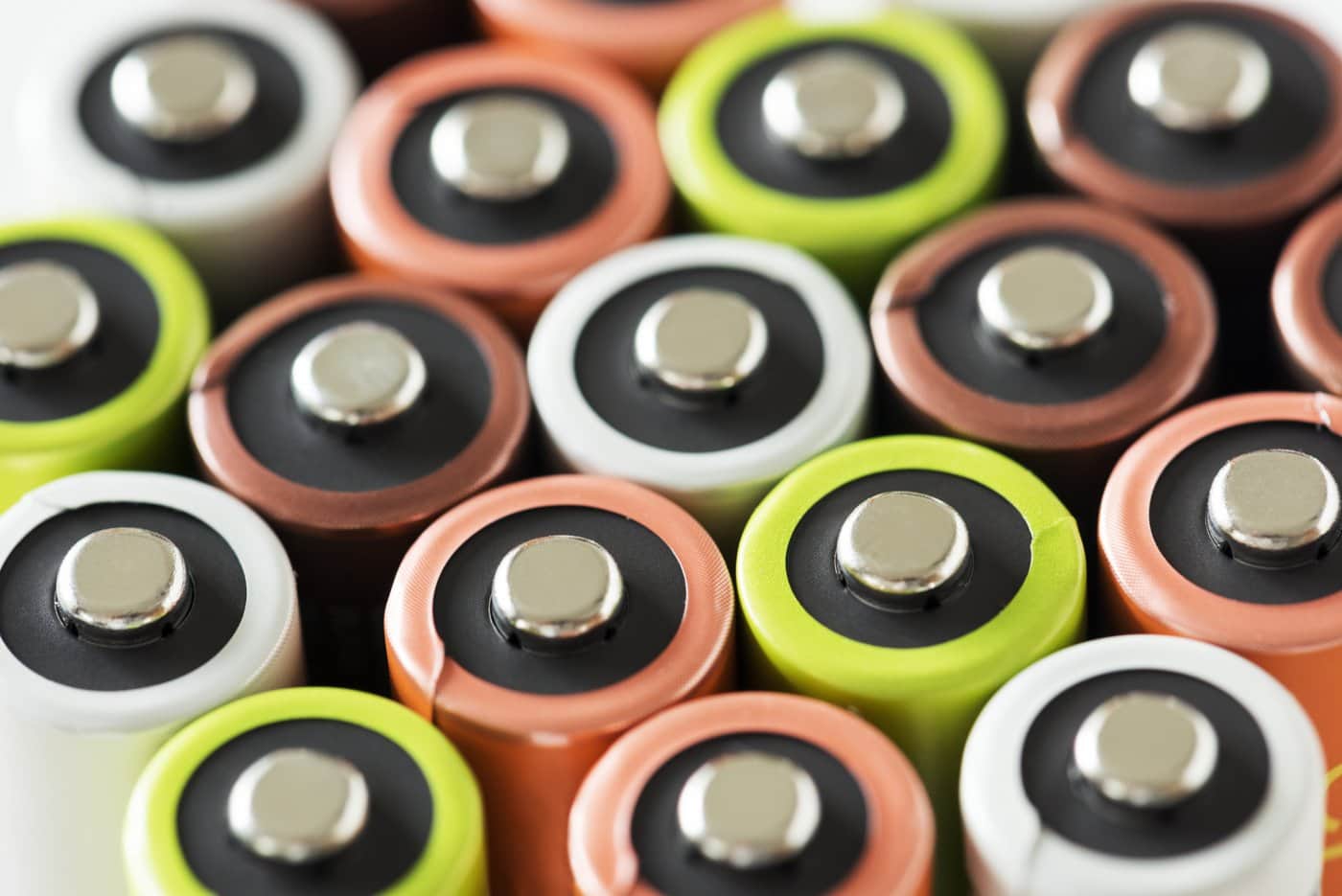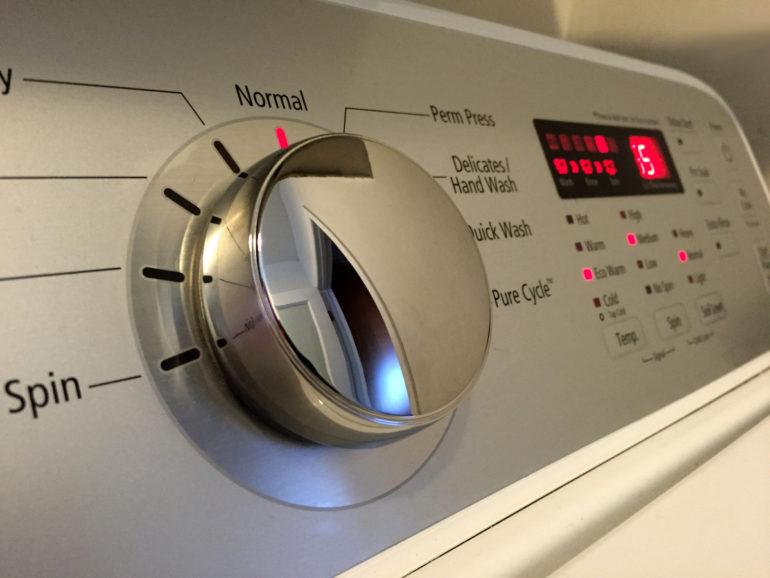Do you have to recycle batteries, or can they go in the trash?
I was just about to throw out some old AA batteries when my girlfriend stopped me and said that I had to recycle them because “they” won’t let you put them in the garbage anymore. Is this true?
Billions & billions of batteries
Americans use up and throw out billions of everyday household batteries each year. According to the EPA, roughly 80% of those batteries are single-use disposables, while the remainder are rechargeables.
When you recycle your dead batteries, you’re helping to keep heavy metals and other chemicals out of landfills, and out of the air.
You’re also helping to conserve natural resources, like metal, plastic and minerals. These can be recovered as they’re separated from the other battery components, which then reduces the need to mine or collect as many raw materials to manufacture… well, more batteries, probably.
Another bonus? Returning your old batteries helps create jobs in recycling and manufacturing industries.
Recharge yourself
How you recycle batteries depends on the type of item. While you need to check your area’s laws regarding batteries, in general, these three battery types are handled differently:
- Single-use alkaline batteries (like your basic AAA, AA, C, D & 9-volt sizes)
- Rechargeable batteries (including both standard sizes and that one in your phone)
- Button cell batteries (round miniature batteries shaped like a coin or button)
1. Single-use batteries are one and done
Alkaline batteries are often not recycled, because — after numerous improvements over the past two decades due to laws restricting the addition of mercury — many areas now consider them to be non-hazardous and allow residents to throw them in the trash.
However, it might be illegal to put them in the garbage depending on where you live. For instance, all batteries are considered hazardous waste in California.
Bottom line: If there are facilities in your area that will accept used alkaline batteries, it’s much better to recycle them, as there are still components in them that can be reused (and you’ll be keeping other bad stuff out of the landfills).
Lithium batteries may also be disposed in the household trash, but it is best to recycle them when possible. (See below for the best way to package your batteries to avoid the risk of fire.
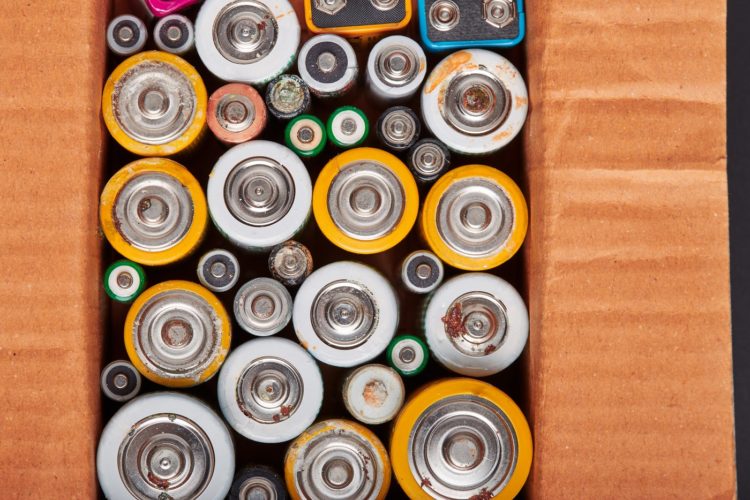
2. Rechargeable batteries
Rechargeable batteries, while more expensive, are actually much more cost-effective in the long run than single-use disposables, because they can be reused hundreds of times.
The fact that they can be recharged also means there’s less waste, and fewer new resources must be plundered to keep your flashlight, remote control and cordless mouse working.
However, it’s really important that rechargeable, reusable batteries also be recycled when they will no longer work. These batteries still contain toxic materials and heavy metals (such as cadmium, lead, lithium, mercury, nickel, silver and zinc) that can not only pollute the environment if disposed of improperly, but can actually be reclaimed and used again.
Nickel-cadmium (NiCD), nickel-zinc (NiZn), and nickel metal hydride (NiMH) are the most common types of rechargable batteries used in household devices with replaceable batteries.
Modern cell phones, like the iPhone, use lithium-ion batteries.
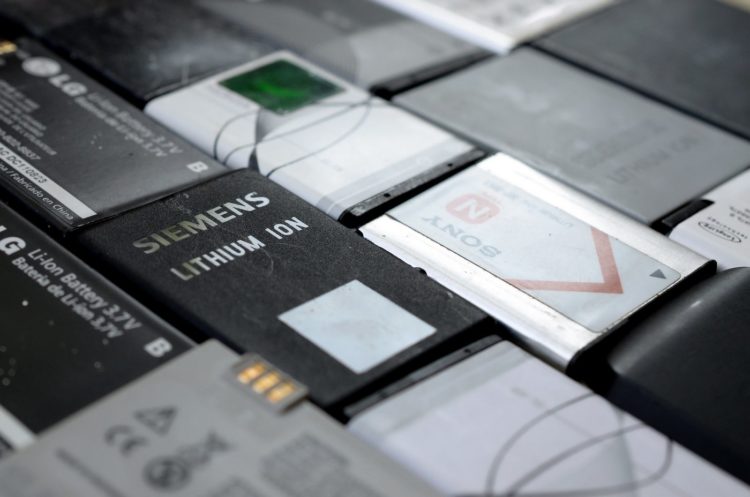
3. Button cell batteries
Button cell batteries are used in small portable electronic devices such as watches, cameras, digital thermometers, calculators and toys. Zinc air, alkaline, and silver oxide button cell batteries contain small amounts of mercury.
According to the Environmental Protection Agency (EPA), the mercury in button cell batteries can escape into the environment after they have been thrown away and are either incinerated or end up in landfills. Though there are no federal regulations prohibiting throwing button cell batteries in the regular garbage, they should be recycled.
If they are not recycled, almost all of the mercury in them can end up in waste that gets incinerated or landfilled. If incinerated, the mercury can end up back in the air; if landfilled, it could end up in groundwater, and potentially contaminate sources of drinking water.
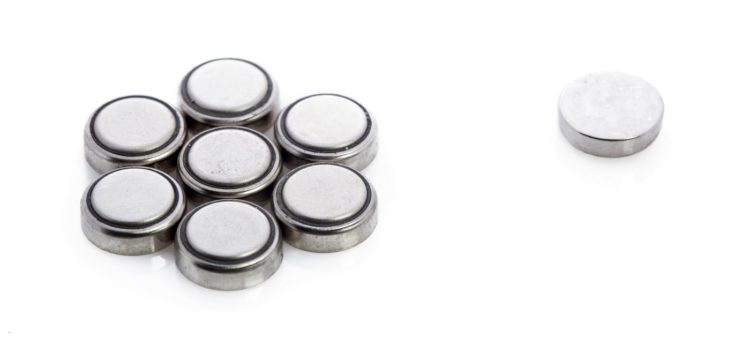
How to prep your batteries for disposal
Consumer Reports says that although old batteries might not have enough juice left to power a device, but they could still spark a fire if they’re not handled carefully. “Store them in a secure container that keeps them lined up side-by-side,” they say, “so the contact points can’t touch each other or brush up against anything that’s metallic or conductive.”
The SWANCC in Illinois specifically notes that lithium batteries pose a fire risk if the terminal ends rub together. Before disposing or recycling a single-use lithium battery, put each lithium battery in a separate plastic zip baggie, wrap it in plastic film, or tape the terminal end with electrical or duct tape.
Where can you recycle batteries?
Call2Recycle, a nonprofit program from the Rechargeable Battery Recycling Corporation (RBRC), provides free battery and cell phone recycling in North America.
Find out about facilities in your area at call2recycle.org. You might also be able to recycle batteries at a local Batteries Plus Bulbs store, or visit your city or county’s hazardous waste department site.
For more good information about which types of batteries can be recycled — and why — check out Earth911’s article, Recycling mysteries: Batteries.
And if you want to stop buying single-use batteries and get going with rechargeables, check out some of the many options available to you here.

